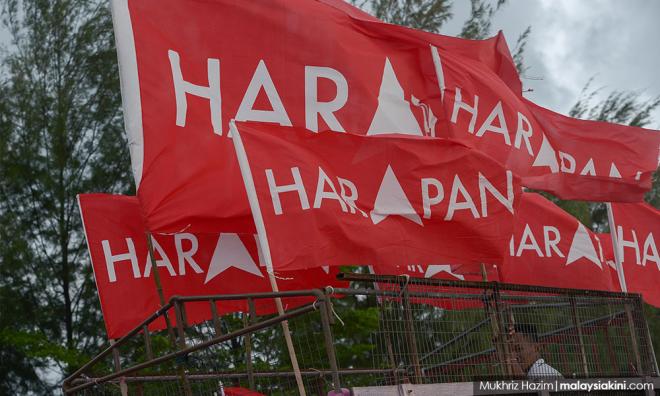
If there is one word to describe the recent Tanjung Piai by-election– it would be bitter.
Despite the fundamental fact that Barisan Nasional (or now Muafakat Nasional) has not moved away from its central core tenants of race-based politics – it is clear that Pakatan Harapan is in a state of crisis.
The federal government has done their part during this election campaign, they after all provided over RM 17 million worth of “coincidental” goodies during the Tanjung Piai election campaign.
Not to mention the heavyweight national-level politicians they had brought to bear over the last two weeks – including an appearance by Prime Minister Dr Mahathir Mohamad (who rarely attends by-election events).
Yet all this was insufficient in convincing voters to once again support Harapan.
While the top leadership takes the heat for its failure in Tanjung Piai, perhaps the true culprits lie in middle-management?
Time and time again have shown that voters do not care about 1MDB and want to see a blueprint that will solve local issues.
Instead what the people see under a Harapan government in Johor is endless controversy and in-fighting – all the while waiting for an economic plan that moves beyond what was already being done.
The state already has an economic corridor in Iskandar, why the need for another that coincidentally includes Tanjung Piai?
Reading the coverage on Tanjung Piai, it is clear that the parliamentary seat has seen little change in terms of real-world progression.
Cost of living continues to rise, fishing prospects dwindle and palm oil prices are now under the whim and fancy of Mahathir’s haphazard foreign policy.
All the while, Bersatu’s candidate, Karmaine Sardini still had the gall to say that palm oil smallholders should be “grateful” since the cost of living in rural areas is much lower than in cities.
Are these the kind of comments that we should expect from our leaders?
Although that is quite self-explanatory since Primary Industries Minister Teresa Kok seems to think that palm oil farmers should look towards planting pineapples instead of trying address questions of unequal palm payments in the palm oil industry.
Yet as the average Malaysian becomes increasingly numb to the “teething” issues of the federal government – it leaves them especially vulnerable to the mismanagement by state governments
We have already been exposed to the clear entitlement and arrogance that state governments have shown in their little kingdoms.
Let us remember the controversial tenure of the previous Johor MB, Osman Sapian’s controversial 11-month tenure as Menteri Besar still impacts the stability of the Harapan government.
Notable “achievements” by Osman Sapian include him lying regarding his academic credentials (which seems to be common amongst Bersatu leadership), compromising the country’s position during the Malaysia-Singapore water dispute by visiting an anchored Malaysian Marine Department vessel.
However, his most egregious mistake was putting his self-interest first instead of the people when he visited Batam Island, Riau for a golfing trip during the height of the toxic pollution crisis of Kim Kim River, Pasir Gudang, Johor.
Too many times we have seen that the state apparatus of these political parties become liabilities to the underlying mission of Pakatan Harapan.
His replacement in Johor Bersatu chief Mazlan Bujang does not inspire any confidence either.
Mazlan, of course, is the same man who was embroiled in scandal when a leaked audio clip revealed that he pressured local official to open sealed off chemical factories in Pasir Gudang.
Given this perhaps, Mahathir was right in refusing to declare a state of emergency during the Pasir Gudang chemical leak crises.
Mazlan Bujang should take responsibility for his party’s failure not for Tanjung Piai – but for the failure of his party to ensure that Johoreans everywhere are taken care of.
Profits over people. No wonder Tanjung Piai rejected more of this nonsense. - Mkini



No comments:
Post a Comment
Note: Only a member of this blog may post a comment.